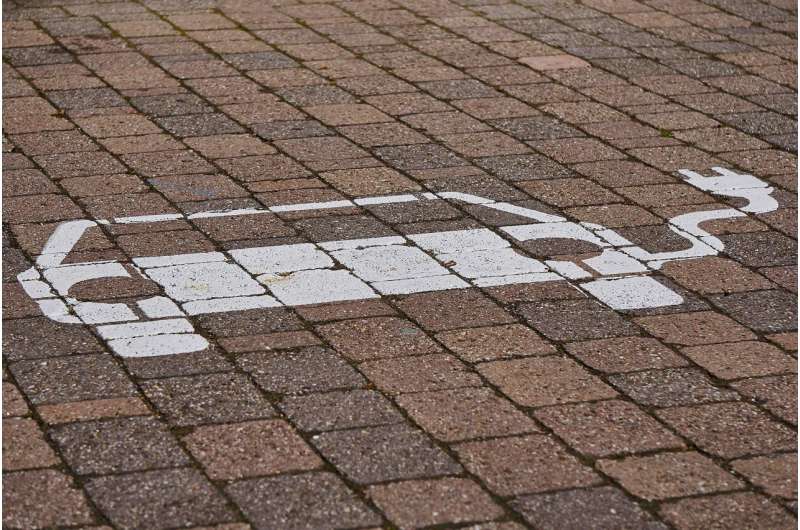Credit: Pixabay/CC0 Public Domain
California lawmakers have passed a measure cracking down on the future sales of new gasoline cars. The rules call for the ban of new gas-powered cars by 2035, with target guidelines to phase out the cars in increments. It is the first ban of its kind, and states nationwide are expected to enact similar policies.
David Popp is a professor in the Public Administration and International Affairs Department in Syracuse University's Maxwell School. Popp's research interests are in environmental policy and the economics of technological change. Much of his research focuses on the links between environmental policy and innovation, with a particular interest in how environmental and energy policies shape the development of new technologies that may be relevant for combatting climate change.
Popp says, "While I support efforts to increase the use of electric vehicles, I worry that an all-out ban on gasoline-powered vehicles would be going too far. Electric vehicles are great for day-to-day commutes, for example, but many consumers are still concerned about the lack of range batteries have for a family road trip. The California policy appears to provide some leeway by allowing hydrogen powered vehicles. But hydrogen vehicles are still an expensive option and fueling stations are limited.
"Whether manufacturers will work to improve the viability of hydrogen vehicles is not clear. The cost of producing hydrogen fuel is a limiting factor, which requires investments from energy producers as well. Automakers have already committed to producing more electric vehicles. A mandate like this helps reassure them that there will be a market for these vehicles. Improvements are likely, but limits on range and charging time may be difficult technical challenges to overcome. It does appear that plug-in hybrid vehicles would be allowed under the California regulation. If so, that could provide an alternative for consumers concerned about range, assuming manufacturers choose to make such vehicles available.
"The 17 states that currently follow California's vehicle emissions standards face a challenging choice. A policy change like this cannot be adopted in a vacuum. New charging infrastructure will need to be built, particularly for people who don't live in single-family homes and can simply plug in a vehicle when they return home. Charging infrastructure will also be needed along interstates and other places where drivers may go on longer road trips. Will states not participating upgrade their infrastructure as well? Additional charging stations mean new electric grid capacity will be needed. For consumers choosing hydrogen vehicles, refueling stations need to be built. And there is no guarantee hydrogen is a clean fuel. Hydrogen can be produced using renewable energy, but it can also be made using fossil fuels.
"Any state choosing to follow California's lead will must be prepared to make the necessary investments to make electric and hydrogen vehicles work in their states. Simply mandating their sale will not be enough."
Provided by Syracuse University
























